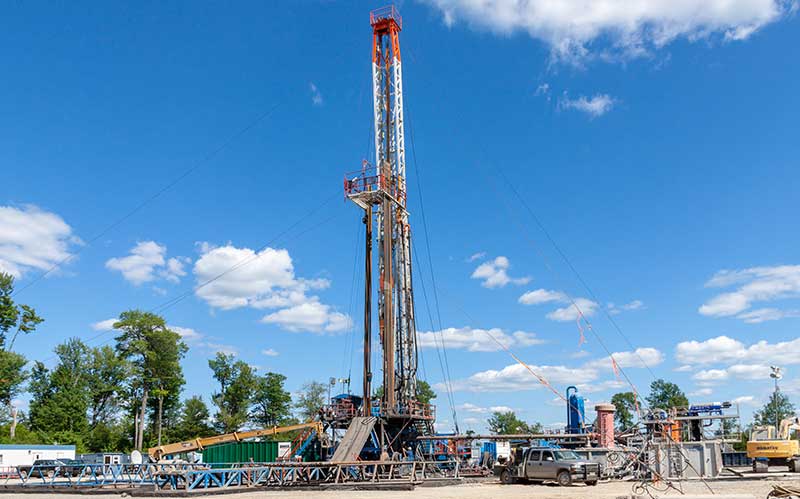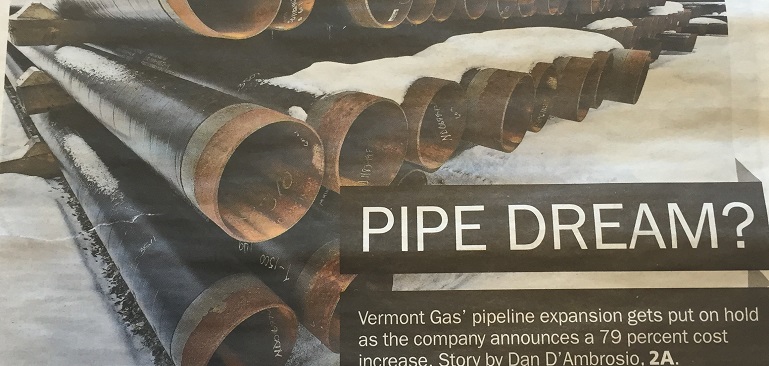
"The economics are beginning to show that, as well as the popular pressure of people organizing and protesting," Brunner said.ĪARP Vermont took a more moderate stance, urging the Public Service Board in a statement to give "very close scrutiny" to the financial viability of Phase 1 and the burden it imposes on existing ratepayers. Keith Brunner, a spokesman for Rising Tide Vermont, said Tuesday building more "fossil fuel infrastructure" is "not the way forward."
VERMONT FRACKED GAS PIPELINE CRACK
The state's interest and mine has always been in getting the choice of affordable natural gas to more Vermont residents and businesses, to help expand economic opportunity."įracked gas refers to the process of hydraulic fracturing, in which drillers inject fluids into gas-bearing rock formations to crack and loosen them, releasing the gas they contain. "I know that the Public Service Board and Department will provide vigorous oversight.
VERMONT FRACKED GAS PIPELINE HOW TO
"I am gratified Vermont Gas will be putting a renewed focus on offering strong public benefits and a choice for Vermonters of natural gas service through its ongoing expansion to Middlebury and continued exploration of how to drive farther south to Rutland," Shumlin said in a statement. Peter Shumlin quickly supported Rendall's assessment on Tuesday afternoon, issuing a news release less than half an hour after the Vermont Gas announcement. I'm confident the right outcome is to proceed with Phase 1 as a stand-alone project, not dependent on getting to Rutland or on Phase 2." "The permitted costs are higher but the benefits are still strong. "The outcome we have advanced and that we are confident is the right outcome is that we proceed with Phase 1 as originally permitted," he said.

Vermont Gas has presented its case for Phase 1 to the state and stands ready to respond to opponents of the project who want to see it dropped as well, Rendall said. The original vision for the pipeline expansion included not only the spur to International Paper, but also a pipeline to Rutland. Rendall said that while Phase 2 no longer made commercial sense, Phase 1 to Middlebury, now before the Public Service Board for a new review, continues to be viable, even as a stand-alone project. One of the benefits of the Phase 2 expansion, Don Rendall said, was to convert the paper plant from fuel oil to much cleaner burning natural gas. International Paper will continue to experiment with its fuel mix options, Wadsworth said, but Number 6 fuel oil will remain the dominant source of energy into the foreseeable future. Wadsworth said International Paper sent a notice of termination for Phase 2 to Vermont Gas on Tuesday morning, as allowed in the contract between the two companies.

For us it was strictly a business decision." "A couple of weeks ago the gave us verbally a cost increase to $135 million and the schedule became an uncertainty. "Then in May of last year they came back to us and said due to construction costs rising and assorted other increases the estimate was $99 million," Wadsworth said.


 0 kommentar(er)
0 kommentar(er)
